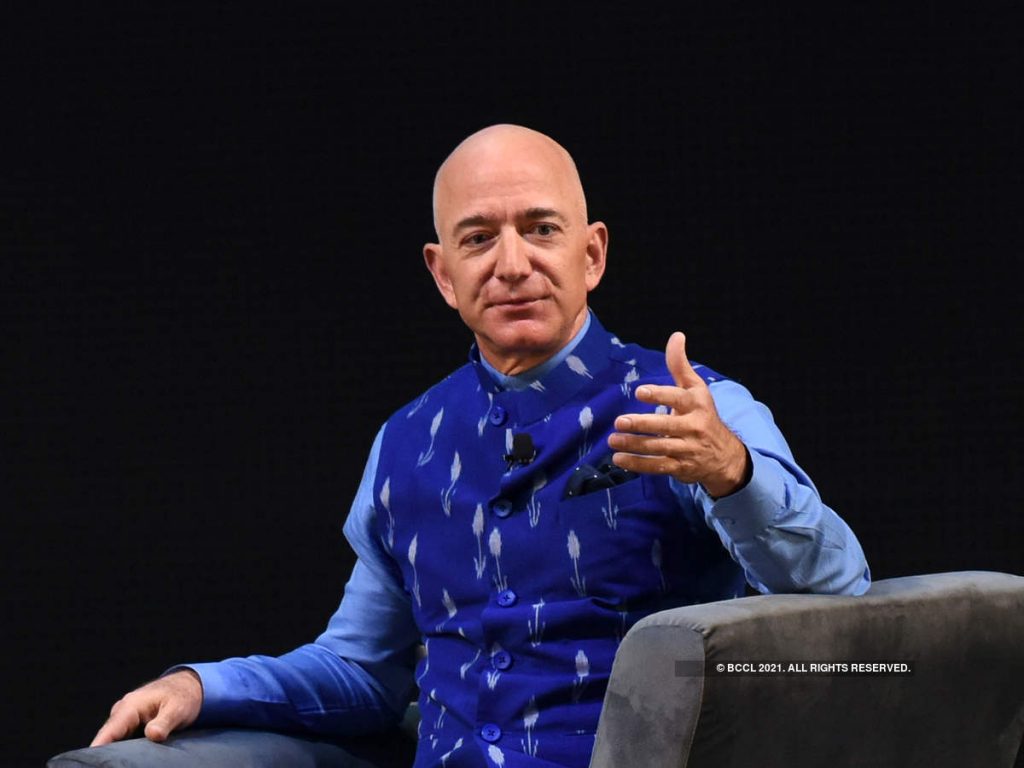On Monday, Amazon CEO Jeff Bezos announced that he would give away $1 billion this year to support conservation activities.
The donation is part of the Amazon founder’s previously disclosed Bezos Earth Finance, which he launched last year to carry out his $10 billion commitment to fund scientists, activists, and non-profit groups fighting the deadly effects of climate change.
The Bezos Earth Fund will focus on the Congo Basin in Central Africa, the tropical Andes region, and the tropical Pacific Ocean.
“Nature is our life support system, and it’s fragile. I was reminded of this just this July when I went into space with Blue Origin,” Bezos said at an event launching the project on Monday. “I’d heard that seeing the Earth from space changes one’s point of view of the world. But I was not prepared for just how much that would be true.”
In addition to preserving biological regions around the world, Bezos’s latest pledge has another objective. By the end of the decade, 30% of the Earth’s oceans and land will be conserved. This is one of the goals of a proposed United Nations pact to lower global extinction rates by a factor of 10.
While scientists and governments have applauded the project, it has been heavily criticized. Some scientists are afraid that governments may prioritize the size of protected areas over biodiversity levels, while many Indigenous rights organizations are concerned with the concept of “fortress conservation.”
“The idea that to protect forests and biodiversity, ecosystems need to function in isolation, devoid of people,” United Nations Special Rapporteur on Indigenous peoples, Victoria Tauli-Corpuz, told the Guardian back in 2018. “This model … ignores the growing body of evidence that forests thrive when Indigenous Peoples remain on their customary lands and have legally recognized rights to manage and protect them.”
Bezos may have had this in mind when he said his donation would prioritize Indigenous and local populations in biodiversity protection. According to him, grants from the Earth Fund will be distributed with a preference for countries and areas that have shown a long-term commitment to environmental conservation.
“Living down here, the world and the atmosphere seem vast, and they seem stable,” he added, although just months before, a few hundred people died in heatwaves throughout milder sections of the US and Canada.
“But looking back at Earth from there, the atmosphere seems thin and the world finite,” he continued. “Both beautiful, both fragile.”
While the billionaire’s recent shift toward environmental activism is admirable, the irony of the decision has not flown under the radar. Under Bezos leadership, Amazon’s annual carbon emissions increased to about 61 million metric tonnes in the last three years. While global carbon emissions fell by 7% last year, Amazon’s increased by nearly one-fifth.
Although Blue Origin may have inspired him to preserve the planet, many have pointed out that frequent trips to space are not ecologically beneficial. Furthermore, a billion dollars a year, which some experts believe would be required to save the world from environmental disasters, may not be enough to offset the potential impact of a successful space tourism venture.
However, this isn’t the first time a bird’s eye view has inspired some soul-searching of life’s precariousness. As Carl Sagan wrote in 1990, when Voyager 1 sent back its iconic “Pale Blue Dot”, “There is perhaps a no better demonstration of the folly of human conceits than this distant image of our tiny world. It underscores our responsibility to deal more kindly with one another and to preserve and cherish the pale blue dot, the only home we’ve ever known.”

